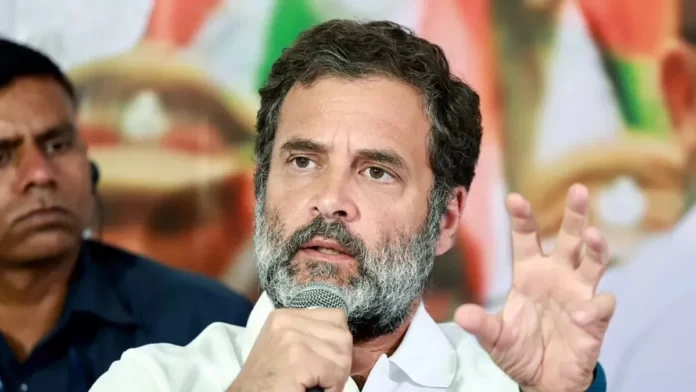On January 22, 2024, a cultural conflict unfolded in Assam as Congress leader Rahul Gandhi sought to visit Batadrava Than, the sacred birthplace of the revered Vaishnavite saint Srimanta Sankardeva. This significant event took place on Pran Pratishtha Day, a day of great importance in the religious calendar, adding an extra layer of significance to the unfolding drama.
The visit, orchestrated by Congress MP Gaurav Gogoi on behalf of Rahul Gandhi, aimed to pay homage to the esteemed Vaishnavite scholar and saint. However, controversy ensued as Rahul Gandhi claimed he was denied permission to visit Batadrava Than by the Satra authorities, citing law and order concerns for a pre-scheduled program. Gaurav Gogoi, speaking on behalf of Rahul Gandhi, expressed disappointment, alleging that there was no program taking place at the time.
The conflicting narratives between the political leaders and the Satra authorities raised questions about the nature of the denial and the underlying reasons for the alleged refusal. Rahul Gandhi’s assertion that he was only allowed entry after 3 PM further fueled the controversy, hinting at a clash of interests between the political itinerary and the Satra’s schedule.
Srimanta Sankardeva, a revered figure of the 15th-16th century, holds a prominent place in Assam’s cultural and religious history. His teachings, emphasizing inclusivity and spiritual devotion over ritualistic practices, have transcended regional boundaries, earning admiration from individuals like Rahul Gandhi. The Congress leader, known for his secular stance, has highlighted Sankardeva’s philosophy of neo-Vaishnavism in previous speeches, emphasizing its relevance in fostering a sense of unity and cultural harmony.
While the Congress party has distanced itself from the politicization of religious events, such as the pran pratishtha of the Ram Mandir at Ayodhya, this visit to Batadrava Than underscores the party’s recognition of Sankardeva’s legacy and his contributions to Indian spirituality and culture. The clash over permissions raises broader questions about the intersection of politics and religion, particularly in a diverse and culturally rich country like India.
As the events unfolded on Pran Pratishtha Day, the visit became a symbol of the delicate balance between political agendas and religious sentiments. The outcome of this controversy may have far-reaching implications, not just for the Congress party but also for the larger discourse on the role of politics in religious affairs. Only time will reveal the lasting impact of this cultural confluence and political clash in the heart of Assam.


